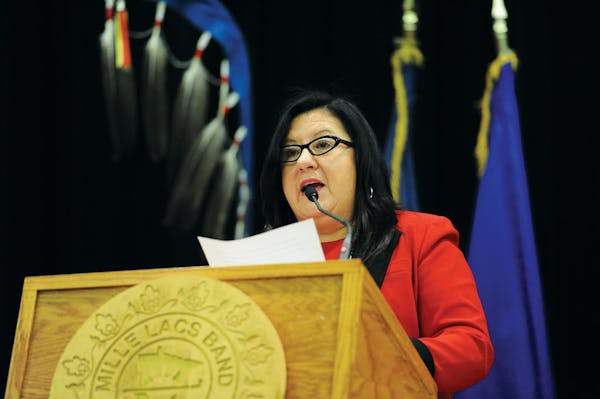Reversing a controversial decision made just two weeks ago, the Minnesota Department of Natural Resources said Tuesday that catch-and-release walleye fishing on Lake Mille Lacs will close for the season on Sept. 6.
The surprise move came in response to dismay expressed by eight Ojibwe bands about Gov. Mark Dayton's Aug. 9 announcement that he would allow the season to continue even after sport anglers surpassed a catch-and-release quota established with the bands. It was the first time a governor had interceded since Minnesota began co-managing Mille Lacs with Minnesota and Wisconsin Ojibwe bands nearly 20 years ago.
Resort owners welcomed the move, but the tribes denounced it in scathing terms.
On Tuesday, Dayton sought to explain the about-face in a prepared statement: "After assessing [the bands'] concerns and the decreased economic impact on local businesses after Labor Day, I have directed the DNR to close Mille Lacs' catch-and-release walleye season."
Fishing for other species will stay open.
Band leaders had quickly challenged Dayton's Aug. 8 conclusion.
"Our biologists believe the state's decision to exceed its share of the agreed safe harvestable limit will prolong and could negatively impact the ability to rebuild the Mille Lacs walleye population," Susan Klapel, the Mille Lacs Band of Ojibwe's commissioner of natural resources, said at the time.
Dylan Jennings, a spokesman for the Great Lakes Indian Fish and Wildlife Commission, noted in early August that the tribes had stopped netting on the lake this year to help the walleye population. "The bands are currently and continually under their quota," he said at the time. "They had expected the state to do the same."
On Tuesday night, Jennings said, "The tribes will continue to examine the biological data and the options at hand. We are not commenting on what the next course of action may or may not be."
DNR spokesman Chris Niskanen said that Dayton and DNR Commissioner Tom Landwehr quickly recognized the bands' "strong disagreement" and that "even though our data showed that the estimated overreach [by anglers] does not pose a threat to the walleye population, this action recognizes that continued fishing would have hurt our relationship with the bands."
Niskanen said the situation was resolved without mediation or lawsuits.
"From a biological point of view, we've done a good job" of maintaining the lake's walleye population for both sport and native anglers, he said. Recent surveys show that of the key 2013-born population group of walleyes, only 1 percent have died of hook injuries.
DNR officials met Tuesday night with resort owners to explain the reversal, he said.
Terry McQuoid, owner of McQuoid's Inn near Isle, Minn., said he won't stop sending out boats if people still want to fish for other species. But he said it will be impossible for guests not to catch walleye, because the fish are all over the lake and bite aggressively. "You can't not catch walleyes right now, even if you're not targeting them," he said.
McQuoid said the reversal will be hard on area businesses. "Unfortunately, it doesn't matter what we say," he said. "We're into treaty management more than biological management, and that's not right."
Steve Fellegy, a longtime Mille Lacs fishing guide, said the reversal shows the state's lack of power to manage the situation scientifically. "Decisions are based on everything and anything but fisheries management," he said.
tony.kennedy@startribune.com 612-673-4213
pamela.miller@startribune.com 612-673-4290

Want to share info with the Star Tribune? How to do it securely

'Safe recovery sites' would offer syringes, naloxone and more to people using drugs. The plan could be in peril.
New Minnesota GOP leaders seek peace with party's anti-establishment wing

Who is Republican Lisa Demuth, Minnesota's first House speaker of color?

